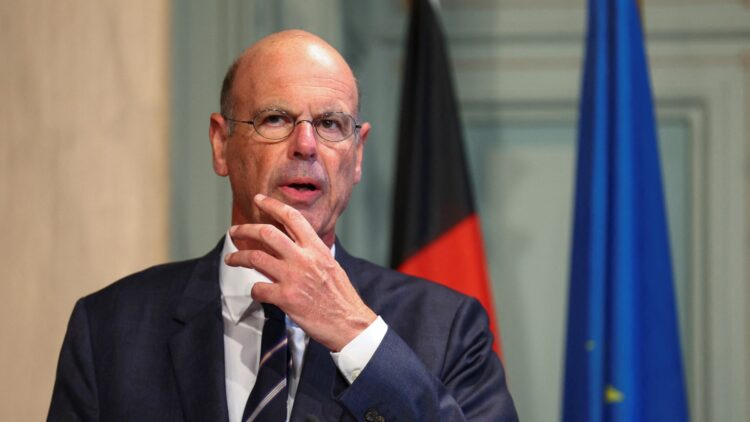US Treasury Secretary Scott Bessent met with German Finance Minister Lars Klingbeil to discuss trade and transatlantic relations. He promised to look for a German steel tax exemption. Even a single policy change by a big economy can have far-reaching effects across continents in the rapidly evolving world of global trade. Governments carefully consider their next course of action, companies prepare for impact, and markets keep a close eye on developments. A cycle of discussions, cautions, and strategic planning is frequently initiated when one trading partner boosts its defences and others follow suit.
Germany threatens retaliation should the U.S. Tariff negotiations fail
German Finance Minister Lars Klingbeil said on Sunday that the European Union must take firm action against the United States if tariff negotiations fail to ease the escalating global trade conflict. President Donald Trump on Saturday threatened to impose a 30% tariff on imports from Mexico and the EU starting on August 1, after weeks of negotiations with the major U.S. trading partners failed to reach a comprehensive trade deal.
The threat has prompted a robust response from German politicians and business leaders, while the EU said it still preferred a negotiated settlement. Klingbeil, who is also vice chancellor in Germany’s ruling coalition, told German newspaper Sueddeutsche Zeitung said,
“If a fair negotiated solution does not succeed, then we must take decisive countermeasures to protect jobs and companies in Europe. Our hand remains outstretched, but we will not go along with everything.”
The EU wants to negotiate a settlement to the U.S. tariff dispute
European Commission President Ursula von der Leyen on Sunday said the bloc favoured a negotiated solution to the row, and would extend the suspension of its countermeasures to U.S. tariffs until early August. von der Leyen said, a reference to a tool that allows the EU to go beyond traditional tariffs on goods and also impose restrictions on trade in services,
“The (anti-coercion) instrument is created for extraordinary situations, we are not there yet.”
Higher U.S. tariffs pose a particular challenge for Germany, as the United States is its largest export market, selling vehicles and automotive components, machinery and pharmaceuticals. In 2024, it sold goods worth 161 billion euros ($188 billion) to the United States, running a trade surplus of nearly 70 billion euros, according to German government data.
Klingbeil said Trump’s tariff policy would only result in losers and called for de-escalation in the row, which he said threatened the American economy at least as much as European companies. “Nobody needs new threats or provocations now,” Klingbeil said.
The implications of a united European stance for the upcoming stage of trade negotiations
Future talks may be greatly impacted by a concerted EU response to prospective U.S. tariff increases. European leaders hope to lessen the possibility of being split by bilateral agreements or sector-specific deals by putting out a unified, unambiguous stance. External partners would find it more difficult to pit one member state against another as a result. Already, for South Korea, there is no date yet for the U.S. auto tariff cut.
Measures under consideration might include more extensive trade restrictions or targeted taxes on American goods if negotiations with Washington come to a standstill. The very idea that such measures are an option conveys a sense of resolution, even though they would probably only be used as a last resort. European companies may feel more at ease knowing that their worries are being taken seriously at the highest political levels. In response to possible trade obstacles, Europe cannot afford to remain reactive. In fact, the EU drew up tariffs on US aircraft, autos and drinks in a new retaliation plan.
GCN.com/Reuters


